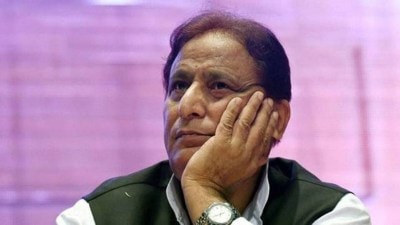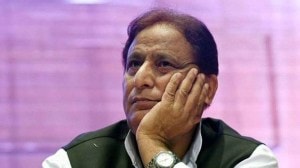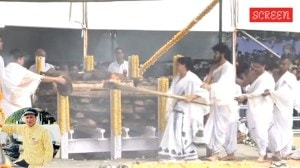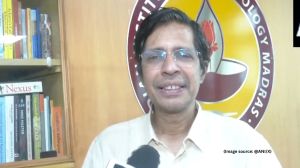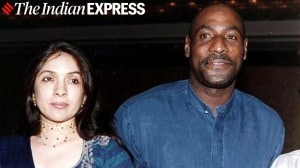Witness to a tumultuous era
At the time of Independence and Partition, all the officers were asked to state in writing their choice of the country they wished to serv...

At the time of Independence and Partition, all the officers were asked to state in writing their choice of the country they wished to serve. Last week I met one of them who stated candidly: "I kept my promise to the Muslim men and volunteered for Pakistan. In fact, I was acting commandant of my regiment and remained with them for six months serving under the flag of Pakistan." This was in the inhospitable terrain of Kohat in the North-West Frontier Province.
Win a couple of million dollars by guessing his name! Win another million by telling me who recommended President Zia-ul-Haq for a regular commission? Let me drop a few hints. Schooled in Shahpur, some three miles from the east bank of Jhelum river and the land of Muslim landowners like the Noons and the Tiwanas, he was among the few hundred pre-War Indian officers to receive a regular commission from King George VI. During World War II, he was the first Indian to join the British officers to go with the regiment for operations in the Middle East and Italy.
In free India, he headed an armoured squadron to fight Pakistan’s tribal incursion into Kashmir. Later, he became the first person from the Third World to be appointed Chief of Staff of the United Nations force deployed in the Sinai after the Suez War. He was appointed Military Advisor to the United Nations Secretary General, Dag Hammarskjold, whom he met in Gaza in 1957. This again was a first. His special assignments carried out for Hammar-skjold’s successor, U Thant, added to his prestige and reputation as a skillful negotiator. He emerged as the leading peacemaker in the late-sixties, the man who was trusted for his objectivity and commitment to the UN peacekeeping mission.
He is the 80-year-old Lahore-born Major General Inder Jit, a man of many qualities. He has risen to the pinnacle of his career, but is remarkably modest and unassuming in his demeanour. He chose to live in the US after retiring from the UN in 1969, but he remains an Indian to the core. Next to the Gita, the writings of Gandhi inspire him most. Ironically, it was the Mahatma who prevailed upon Inder Jit Rikhye’s father, whose ancestors had close ties with Maharaja Ranjit Singh, to let him join the army. Incidentally, his father was a medical doctor who died in 1951.
Nurtured in the composite ethos of pre-divided Punjab, he does not speak the language of a V.S. Naipaul. Hindutva or Hindu nationalism militates against his world-view. He is not a Muslim or Islam-baiter. He is a fervent votary of Indo-Pa-kistan rapprochement and recalls his friendship with several surviving Pakistani generals. "Not only India and Pakistan are divided but they now seem quite determined to appear different. If Biji (mother) were alive, she would have said the same. Do you know something? "In the army barracks, we weren’t sensitised to the great communal divide in the 1940s. At least I wasn’t. India’s Partition? Nobody talked about it. Not even the Muslim officers." Much of this conversation was filled with nostalgia and a sense of remorse at the unfortunate turn of events.
When he visited Pakistan decades later, "the wounds of Partition and the sacrifices of my family for the price of freedom were still raw under my scars." This was during Zia-ul-Haq’s regime. I was reminded of Amrita Pritam, a remarkable Punjabi writer and poet, who once implored Waris Shah "to turn the page of the book of love" in a region where "somebody has mixed poison in all the five rivers."
Why did General Rikhye leave Kohat? Well, Mohammad Ali Jinnah did not want a Hindu or Sikh officer in the Pakistan army. "My inability to remain with the regiment and continue my life in the land where I was born and with the people I knew, had dampened my enthusiasm for independence." He dreaded the day when the transfer of his squadrons would take place. "It would be a terrible wrench, like losing someone from your family, and that is what we were." Clearly, the General had no feelings for national borders or the geographical entities that were being laboriously created in 1947.
National borders were political constructs, imagined projections of territorial power. They reflected merely the mental images of politicians, lawyers and intellectuals but not the men on the battlefront. Rikhye agreed with me that the cartographic and political divisions constituted by Partition were "the shadow lines" that the novelist Amitav Ghosh seeks to repudiate.
It was a cool and misty morning of September 27, 1947, when the train pulled out of the otherwise sleepy Kohat railway station. Escorted by the Pakistan army, some 1,500 men and 500 women and children travelled through the valley of death and destruction to reach their destination. The journey from Kohat to Rawalpindi and Sialkot from Jinnah’s Pakistan to Gandhi’s India in Ambala (via Montgomery) took 21 grueling days.
Describing the journey, the General picked up Bapsi Sidhwa’s novel Pakistan Bride and started reading out a passage he had marked the night before our meeting: "The earth sealed its clumsy new boundaries in blood as town by town, farm by farm, the border was defined. Trains carrying refugees sped through the darkness at night Hindus going one way and Muslims the other.
They left at odd hours to try to dodge mobs bent on their destruction. Yet trains were ambushed and looted and their fleeing occupants slaughtered."General Rikhye vividly described his engagement in Kashmir, the site of his `last battle’, his missions to Congo, Cyprus, Yemen, Cuba and West Asia, his close encounters with Indian politicians, including Indira Gandhi, and his interaction with men of power and influence at the UN Secretariat on the East river in Manhattan and in the far-flung areas of Asia and Africa. To a historian like me, he offered quite a remarkable tour de force. He was, after all, a witness to a tumultuous era.
Indeed, I learnt much about international politics that I did not know. Let me share with you his meeting with Zia-ul-Haq. Why did you hang Bhutto? Rikhye asked the President. Zia kept quiet for a while. Then, he drew his right hand across the throat and declared, "It was either him or me." Somebody remarked that "Generals never die, they just fade away." I beg to disagree. With his distinguished record in India and overseas, the awards and honours he has received and the books he has published, it is hard to imagine Major General Inder Jit Rikhye fading away.
Photos



- 01
- 02
- 03
- 04
- 05


